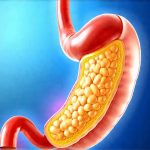Indigestion, that uncomfortable feeling of fullness, bloating, nausea, and sometimes heartburn after eating, is something most people experience at least occasionally. It’s rarely serious, but consistently battling it can significantly impact quality of life. While many over-the-counter remedies exist, an increasing number of individuals are turning to natural solutions, with apple cider vinegar (ACV) gaining considerable attention as a potential aid for digestive discomfort. However, despite its popularity, understanding how to use ACV safely and effectively for indigestion is crucial – it’s not a one-size-fits-all solution and requires careful consideration.
The appeal of ACV stems from traditional uses and anecdotal evidence suggesting benefits related to digestion. Many believe it can help balance stomach acid levels, improve enzyme production, or even act as a probiotic precursor, fostering a healthier gut microbiome. But the science is nuanced, and improper usage can actually worsen indigestion symptoms for some people. This article will delve into the safe use of apple cider vinegar specifically targeting indigestion, exploring its potential mechanisms, appropriate dosages, crucial precautions, and when to seek professional medical advice. It’s vital to approach ACV as a potential complementary strategy rather than a quick fix, always prioritizing personalized health management.
Understanding Apple Cider Vinegar & Indigestion
Apple cider vinegar isn’t simply “sour apple juice.” It’s made by fermenting apples with yeast and bacteria, transforming the natural sugars into acetic acid – this is the primary active component responsible for its distinctive flavor and potential benefits. Unfiltered, unpasteurized ACV, often called “mother” ACV, contains strands of cellulose and beneficial bacteria which some believe enhance its health properties, though more research is needed to definitively confirm this. The core idea behind using ACV for indigestion rests on the hypothesis that many people experience indigestion due to low stomach acid rather than excess. This low acidity can impair digestion, leading to bloating, gas, and discomfort.
However, it’s important to acknowledge that indigestion isn’t always caused by low stomach acid; factors like rapid eating, overeating, stress, food sensitivities, or underlying medical conditions (like GERD – Gastroesophageal Reflux Disease) are often involved. In cases of hyperacidity (excess stomach acid), ACV could potentially exacerbate symptoms. Therefore, self-diagnosis is discouraged, and understanding the root cause of your indigestion is paramount before incorporating ACV into your routine. Furthermore, the acidity of ACV can erode tooth enamel, so dilution and proper timing are essential to mitigate this risk. If you struggle with eating safely at social events due to GERD, consider how to eat out safely .
The potential mechanisms by which ACV might aid digestion include: – Stimulation of digestive enzymes: Some believe acetic acid may stimulate enzyme production necessary for breaking down food. – Improved stomach pH balance (in cases of low acidity): The idea is that it could help restore a more optimal acidic environment for digestion, but this remains controversial and dependent on individual circumstances. – Potential prebiotic effect: The “mother” in ACV might contain beneficial bacteria precursors contributing to gut health, though the extent of this effect requires further investigation. It’s crucial to remember these are proposed mechanisms, not guaranteed outcomes. If you have severe intolerances it’s important to learn how to safely eat out .
Dosage & Preparation Guidelines
Determining the right dosage of apple cider vinegar for indigestion is highly individual and should start cautiously. Begin with a very small amount – typically 1 teaspoon diluted in at least 8 ounces of water. This initial dose allows you to assess your body’s response and minimize potential side effects. You can gradually increase the dosage if tolerated, up to a maximum of 1-2 tablespoons per day, always diluted. Never consume undiluted ACV directly as it can damage tooth enamel and irritate the esophagus.
Here’s a step-by-step guide for safe preparation: 1. Choose raw, unfiltered, unpasteurized ACV (“mother” ACV is preferred). 2. Mix 1 teaspoon of ACV with at least 8 ounces of water. 3. Drink before meals – approximately 15-20 minutes prior to eating—to potentially aid digestion. Alternatively, it can be consumed after a meal if tolerated. 4. Rinse your mouth with plain water afterward to help neutralize the acidity and protect tooth enamel. 5. Monitor for any adverse effects, such as heartburn, nausea, or stomach upset. If these occur, reduce the dosage or discontinue use.
It’s also important to consider when you take ACV in relation to other medications. Because of its potential impact on blood sugar levels (more on this later), individuals with diabetes should be particularly cautious and consult their healthcare provider before using ACV. Furthermore, ACV may interact with certain medications like diuretics or digoxin; therefore, a conversation with your doctor is essential if you’re currently taking any prescription drugs. Remember that consistency is key—if you’re trying to incorporate ACV for digestive support, it’s best to do so regularly rather than sporadically. Understanding your gut health can be improved by building a complete profile.
Precautions & Contraindications
While generally considered safe for most people when used appropriately, apple cider vinegar isn’t without its potential drawbacks and contraindications. Individuals with pre-existing medical conditions should exercise extreme caution and consult their healthcare provider before using ACV. This is particularly important for those with: – Gastroesophageal Reflux Disease (GERD): While some claim it helps, ACV can worsen heartburn in individuals with GERD due to its acidity. – Gastric ulcers or gastritis: The acidity could irritate existing sores or inflammation. – Diabetes: ACV may affect blood sugar levels, potentially interfering with diabetes management. – Kidney problems: Excessive consumption may strain the kidneys.
Beyond these conditions, several other precautions should be taken: – Tooth enamel erosion: Dilution is essential to minimize this risk. Regular dental check-ups are also recommended. – Esophageal irritation: Never consume undiluted ACV and avoid taking it close to bedtime to reduce the risk of acid reflux. – Medication interactions: As mentioned earlier, ACV can interact with certain medications; consult your doctor or pharmacist if you’re on any prescription drugs. – Digestive upset: If you experience nausea, vomiting, diarrhea, or stomach pain after consuming ACV, discontinue use immediately and seek medical attention if symptoms persist.
Finally, it’s vital to remember that ACV is not a substitute for proper medical care. If your indigestion is severe, persistent, or accompanied by other concerning symptoms (such as difficulty swallowing, unintentional weight loss, or blood in your stool), consult a doctor promptly. Self-treating with ACV without addressing the underlying cause of your indigestion could delay appropriate diagnosis and treatment. A gut test schedule can help understand the root cause.
It’s also important to note that while some promote ACV for weight management or other health benefits, these claims are often based on limited scientific evidence. Focus primarily on using it responsibly as a potential complementary aid for existing indigestion symptoms, not as a cure-all solution. If you’re unsure about new foods, consider how to safely try them. Remember that learning food restrictions is important too.


















